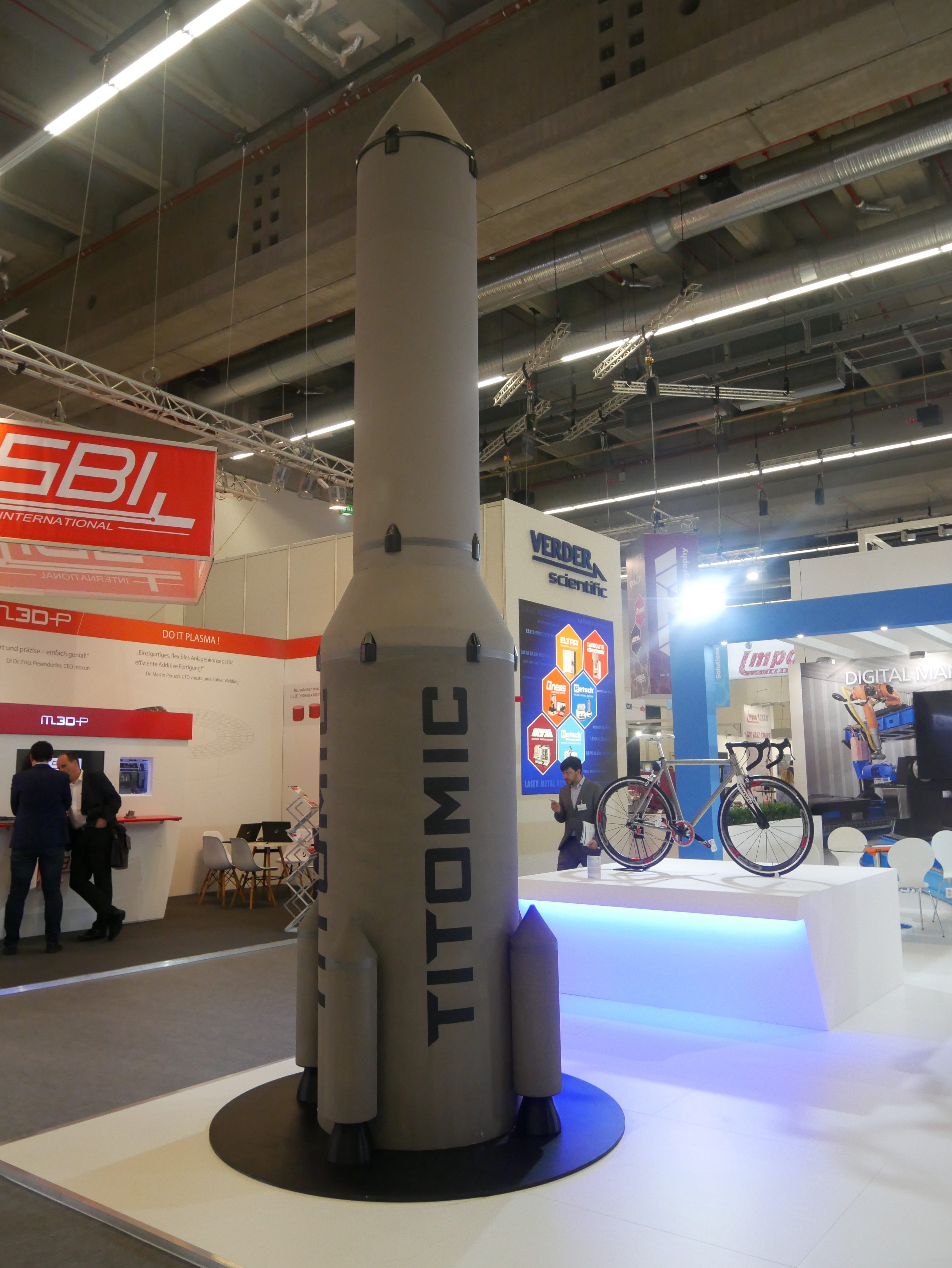Australian metal 3D printer manufacturer Titomic has made two recent announcements relating to its Titomic Kinetic Fusion (TKF) additive manufacturing technology.
The first update concerns a partnership with US-based global product development and technology company Triton Systems to implement TKF technology for validation through US Department of Defense (DoD) R&D projects. “The signing of this Agreement with Triton Systems, a successful US technology venture company, represents a strong pathway to explore commercial opportunities within the US Department of Defense,” comments Mr. Jeff Lang, Titomic Managing Director.
Following its partnership with Triton, Titomic also announced that it received a Purchase Order for a Statement of Work with international aerospace giant Airbus. The purchase order concerns near-net demonstrator parts for a targeted application 3D printed using the TKF process.

What is TKF metal additive manufacturing?
Titomic was founded in 2014 with the aim of commercializing TKF technology. TKF is a solid-state metal additive manufacturing process developed and patented by Australia’s Commonwealth Scientific and Industrial Research Organisation (CSIRO). The technology is capable of fusing multiple dissimilar metals together within a single part using cold-spray fabrication. As such, TKF enables the potential introduction of different, high performance materials that are unique to the technology itself.
As the exclusive holder of the rights to commercialize the TKF process, Titomic has engaged in various partnerships to develop CSIRO’s technology and bring it to market, particularly within the aerospace and defense sectors.
In aerospace, the company partnered with Australian space company Gilmour Space Technologies to produce ‘high-performance’ rocket and space components using TFK additive manufacturing in 2019. Additionally, within the last month Titomic also partnered with Ascent Aerospace to bring TKF technology to Ascent’s extensive aerospace customer base.
Now, Titomic will be using its TKF additive manufacturing process to produce 3D printed multi-material near-net demonstrator parts for Airbus. The targeted application of the parts will be performance tested in a mock qualification process. The first steps will involve an initial TKF material and process parameters development phase for Airbus, followed by a representative geometry demonstration. Using TKF, the demonstrator parts will be 3D printed and then evaluated to determine the end to end process for multi-material additive manufacturing.

Titomic partnerships in the defense sector
Titomic’s recent defense-related partnerships includes a AUD $25.5 million equipment sales agreement with Composite Technology, a global defense supplier, to provide two of its TKF manufacturing systems for defense-related product and component development. Additionally, in September 2018 the company signed a defense agreement with TAUV, a manufacturer of military-grade armor, to produce “ruggedized soldier-enabled” UAVs. This resulted in the creation of a prototype 3D printed UAV, which was shortlisted for the Land Forces 2018 Industry Innovation Awards, an international defense exposition held in Adelaide.
Titomic’s new strategic agreement with Triton will facilitate the application of its TKF technology to the DoD’s R&D projects, which aim to develop innovative products and solutions. The partnership will leverage Triton’s extensive access and expertise regarding the US DoD.
Established in 1992, Triton specializes in bringing specific products and services to a validation stage for DoD approval, which subsequently leads to product manufacturing. These products are often designed to address complex challenges that support the DoD through applied research and development, including the design, development and supply of products, subsystems, and components to meet US military requirements. Therefore, they are often critical for the DoD and national security, as well as major defence prime government contractors, and related applications, such as the Department of Homeland Security (DHS). Its partnership with Titomic will focus on 3D printing products using the TFK process alongside advanced materials while also meeting stringent military requirements. Triton aims to fill a performance gap relating to the fusion of dissimilar metals for the DoD, as its current metal 3D printing processes have not been able to meet the requirements of certain mission critical applications.
Titomic has outlined six areas of collaboration that form the agreement. This includes DoD programs to deliver TKF-produced prototypes; a technology transfer program to “up skill” their respective technical teams; and the acquisition of one or more TKF systems within Triton’s facilities in the US. Triton will also be the preferred partner for distributing TKF systems and TKF metal powder consumables throughout the US, and it will also explore opportunities to secure investment to fund TKF system acquisitions for US service bureau roll-outs. Finally, in the interim, Titomic will provide sample and prototyping fabrication services for existing Triton development efforts from its Melbourne TKF bureau.
The nominations for the 2020 3D Printing Industry Awards are now open. Who do you think should make the shortlists for this year’s show? Have your say now.
Subscribe to the 3D Printing Industry newsletter for the latest news in additive manufacturing. You can also stay connected by following us on Twitter and liking us on Facebook.
Looking for a career in additive manufacturing? Visit 3D Printing Jobs for a selection of roles in the industry.
Featured image shows the Titomic Kinetic Fusion 3D printer at Formnext 2018. Photo by Michael Petch.

